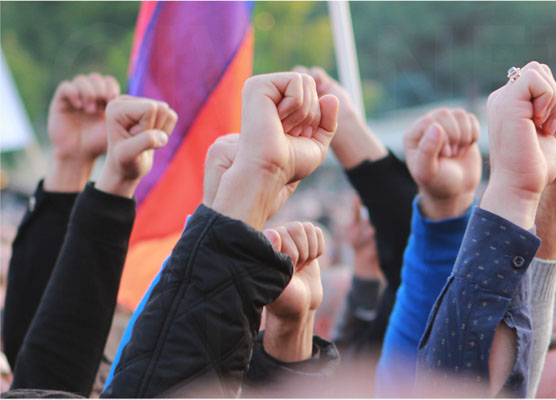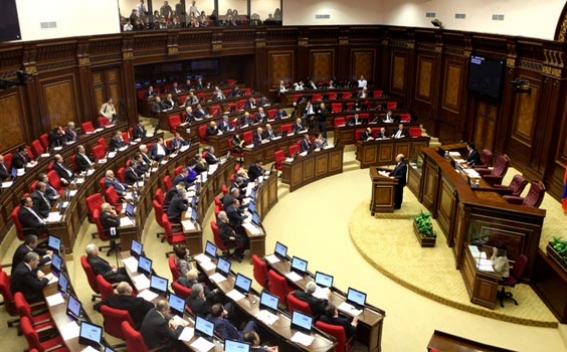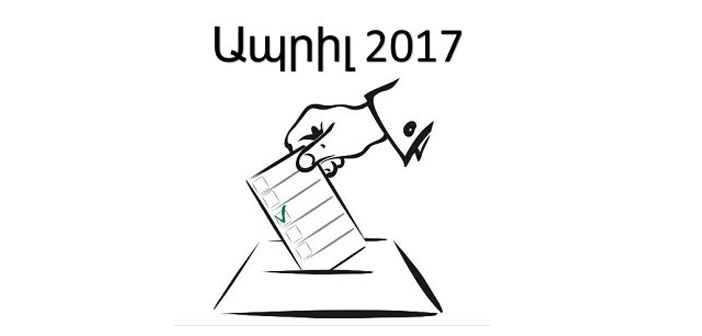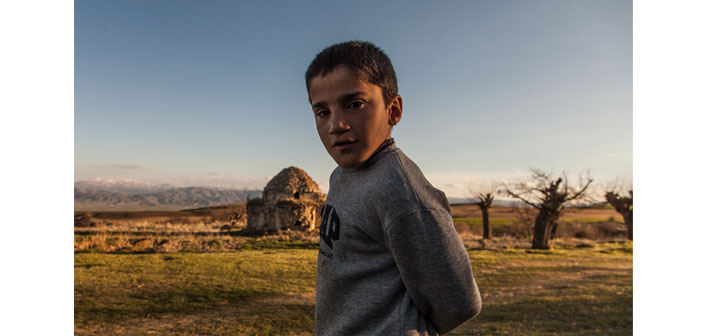We discussed the current atmosphere in Armenia, the demands of the opposition, the fundamental problems of the country and the policies Sargsyan has implemented during his presidency with Armen Grigoryan, one of Armenia’s leading political science experts.
ALİNE OZİNİAN
Recently, certain changes have been taking place in Armenia. In October, tens of thousands of people assembled across the country with the hope of changing the state of affairs, and forcing the government to resign. Although it has not caused great turbulence yet, this was a development with the potential to become a turning point in the future. The participation of the leaders of opposition parties, Levon Ter-Petrosyan, Raffi Hovannisian and Gagik Tsarukyan, to the greatest demonstration held on October 24 at the Freedom Square in Yerevan, was of great significance. The only thing the three leaders and the people wanted was the resignation of Serzh Sargsyan, whom they believed had come to power via a rigged election. Leaders and representatives of the three opposition parties, the Armenian National Congress, Prosperous Armenia and the Heritage Party, stated in their speeches that they would unite despite differences in their political views, that it was no longer possible for Armenia to continue with the current administration, and that it was necessary for the people to widely participate in this movement of change. This was the largest protest the country had witnessed since 2008.
We discussed the current atmosphere in Armenia, the demands of the opposition, the fundamental problems of the country and the policies Sargsyan has implemented during his presidency with Armen Grigoryan, one of Armenia’s leading political science experts.
What do the people demonstrating in the squares want?
The only thing they want is the resignation of the government. The foreign press tried to portray these protests as a move against Armenia’s membership to the Eurasian Union. Yet Armenia is very clear about the union. Frequent statements were issued during these protests to prevent events similar to those in the Ukraine ensuing. It was expressed that these protests were about Armenia, not foreign policy. After having clearly expressed this in the squares, Gagik Tsarukyan, the leader of the Prosperous Armenia Party, gave an interview to Russia’s renowned Nezavisimaya newspaper, stating that these anti-government actions should not be perceived as an anti-Russian movement, and that the opposition forces always sought good relations with Russia. In fact, it would be impossible to bring so many people in Armenia out into the streets against Russia. It is true that there are some marginal groups, but the people essentially want good relations with Russia.
Do Armenians no longer believe that the elections are transparent?
The 1991 election was a real election. There was only Levon Ter Petrosyan back then, there was no need to tell lies. There was no political opponent, but 4-5 years later, these “methods” began to be applied. 1994, 1996, 2008, all these elections took place in a tense atmosphere. 1 March 2008 was bloody, also, 10 people were murdered, and all those crimes were covered up.
Today, the circumstances are different when compared to 2008. The balance was different back then. We were in a different state economically. And it was only the middle class demonstrating. Today, political forces have taken to the squares and there is huge political opposition. Everyone is out there demonstrating in the squares, including three large political parties, and one of the biggest businessmen, Gagik Tsarukyan. This means that even the rich have begun to fear that they will lose something. They think it is their turn.
The economy is clearly deteriorating. While the economy was in a better state during the Kocharyan period, it has begun to slip during the period of his successor Sargsyan. Why?
The positive impact of the privatisations made during Levon Ter Petrosyan’s term were felt during Kocharyan’s term. Investments were made during Kocharyan’s term. People could protect their capital, their investments, because there was a higher level of confidence. Apart from investments made by Armenian citizens, there was also foreign investment. Capital was secure, but the administration was very authoritarian. It was impossible to conduct protests and rallies during those years... But, yes, the economy was improving. The economy was free, there were middle-sized investors, smaller businesses could profit alongside big business. Of course, Sargsyan has also been unlucky in that he came to power at a time of worldwide economic crises.
However, as society develops, its members seek their rights. As society developed, they were bound to expand the scope of their rights, and that is precisely what happened. Economic development was followed by the demand for rights. And the struggle bore its fruit; we can now hold rallies. In brief, people can hold protests in squares today not because Sargsyan is a milder, or more democratic politician. After a certain point, it is impossible to stop the people.
Today, the demands are very different. In previous years, people took to the squares for more freedom, and for basic rights; the laws did exist, but they were not implemented. Today, with such a bad economic situation, the demand voiced in the squares is different. The moment the middle class that formed during Kocharyan’s term began to demand rights, it also began to pose a threat. The tendency to stifle the development of the middle class and prevent external migration is actually rooted in this. A class that demands its rights is a source of fear for the government.
Why has the economy failed so badly in the Sargsyan period?
Corruption. This method of demanding a share of profit, or racketeering, developed by Serzh Sargsyan’s brother, has now become the country’s economic model. They go to businessmen, demand that they sell their business to them, offer very low sums, and to those who resist, tell them that they must pay 50% of their profit. This has intimidated everyone, no one wants to invest, and you are not protected in business. This is the reason Gagik Tsarukyan is out there in the city squares today. He, too, fears losing his capital.
Call it illegal taxing, or bribes. We know that this unfortunately exists in other countries in the region. Do you think the problem is the abnormally high percentage of taxes that is being demanded? I mean, for what purpose would you demand 50% of the profit of a commercial enterprise?
These illegal percentages existed during Kocharyan’s term as well, but they did not reach such extreme levels. Why would you ask for 50%? So that person cannot operate at all, terminates his or her business, and you can take over the entire commercial sector... This demand for shares has now descended as far as medium-sized enterprises, it no longer concerns only the large commercial enterprises.. No investor can cope with paying both the legal tax, and the bribes.
You said that the administration does not want the middle class. Isn’t that slightly paradoxical? Since they have large-scale commercial institutions, they should also need a middle class that will benefit from them, that they can sell their products to? Without the middle class, who will they administrate over, or, whom will they sell their products to?
Yes, it is paradoxical, but look, they fear the political demands of the middle class. For them, the middle class is a class with consciousness; that is precisely what they are fleeing from.
Does it make sense to only demand the resignation of the government? Who would just leave their seats and go? What is the source of the confidence of those who demand this? Who do they want to replace Sargsyan? What is the new plan?
The first demand is new elections. I guess Gagik Tsarukyan could be the candidate. Speaking on behalf of the opposition, he states that others, too, could be candidates. He uses the phrase “new President”, and that shows that Levon Ter Petrosyan, the first President of the Republic, is no longer considered as an option. But Tsarukyan also adds, “If the people want me, I will become a candidate”.
The first plan goes like this. First, the parliament will be dissolved in stages, and then the government will be dissolved. Of course, Sargsyan and the opposition will do this together. This means that Sargsyan will retain his Presidency until 2018. This is the model that will be proposed... If Sargsyan rejects it, and does not enter a bargain, then his resignation will be demanded as the one and only stage. Of course, at the moment it seems that Sargsyan will reject the first proposal. His plan is to change the constitution and extend his Presidency for another term.
If Sargsyan does not accept resignation, what will be the power of the opposition to change all this?
The people. The people are your only source of power in times of change.
That means a bloody revolution...
No, there will be no blood. First, Armenia does not have the human resources to sacrifice people; it does not have such a luxury. Second, all the leaders that form this trio constantly reiterate that there will be no blood. If they had wanted blood, Ter Petrosyan could have done this in 2008. The people were ready back then, the necessary atmosphere had taken shape, they were very close. They could have entered the Parliament on the night of March 1, the people were in the streets, they were carrying sticks, they were waiting for a sign, but Ter Petrosyan did not give that sign.
Yes, the sign was not given, but the police and the army were on the streets as well, any move could have met a response.
This is in fact where the fundamental change is today. If such conditions emerged today, there exists definite information that the army won’t be brought out onto the streets. We know that Seyran Ohanyan declared, “no permission will ever be issued again to open fire onto the people”. Sargsyan’s Presidency is not desirable for many people anymore. Even Kocharyan does not support Sargsyan anymore.
There are no transparent elections, the opposition has no clear plan, nobody wants blood to be shed, there is no support from the West –is it not exceedingly optimistic to really expect a revolution under such circumstances?
The elections were not transparent, but they can be now. The three opposition parties will work towards achieving transparent elections; they will look after the ballot box. There is no support from the West, there is no money coming in, but there is the local bourgeoisie. There is a big businessman, Tsarukyan. He is rebelling today, because he is not a member of Sargsyan’s circle, he did not make his fortune with Sargsyan’s help, and what they want today is to finish Tsarukyan off, he is aware of this, and he wants to secure his position.
Armen Grigoryan
Armen Grigoryan studied at the Armenian State University Department of International Relations and Political Sciences, and continued his studies at the American University. He completed his MA and PhD at Georgetown University, and has many articles and column pieces published both in Armenia and abroad.
Who is Gagik Tsarukyan?
Founder and leader of the Prosperous Armenia Party, Gagik Tsarukyan is currently the wealthiest businessman in Armenia. The reason he has taken to demonstrating in city squares is the fear that the current economic system will destroy his capital too. Tsarukyan performed considerably well at the local elections, and at present, has managed to satisfy the people in the areas he has won elections, and in the Kotayk canton where he lives. The people perceive Tsarukyan more as a philanthropist rather than a politician. Thanks to Tsarukyan, Armenia receives internal support without becoming too dependent on help from the West. In this respect, he is often compared to the Georgian oligarch Ivanishvili. Tsarukyan is considering a number of candidates for Presidency, but has also said, “If necessary, and if the people so desire, I, too, could take the seat.”
Why the Eurasian Union?
The closed border with Turkey, Azerbaijan’s increasing investment in arms, the Karabakh issue, in other words, a fundamental security vulnerability is the main reason to form closer ties with Russia, and therefore, enter the Eurasian Union. Russia still comes first in Armenia’s exports, Armenia still has strategic industrial plants, that have been transferred to Russia because of debt, that do not work at full capacity, or perhaps are deliberately not operated at full capacity, the existence of Russia’s military base no. 102 in Armenia, and the existence of around 2 million Armenians, most of which have taken Russian citizenship, and play a considerably important part in Russia’s economic and political life… The increasing convergence of the country to Russia in areas such as railways, communication lines and energy… Therefore, it is no surprise Armenia wants to enter the Eurasian Union.





